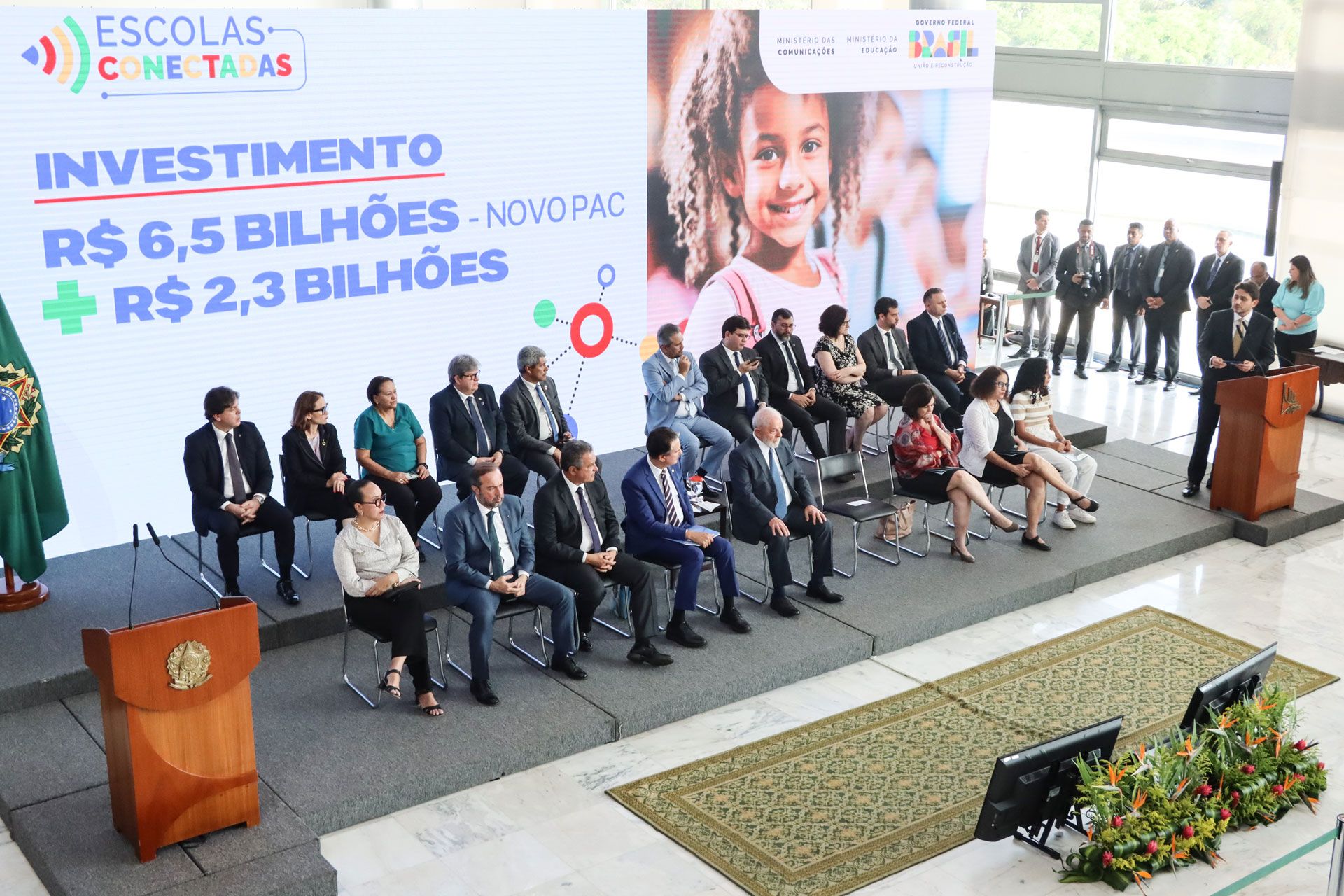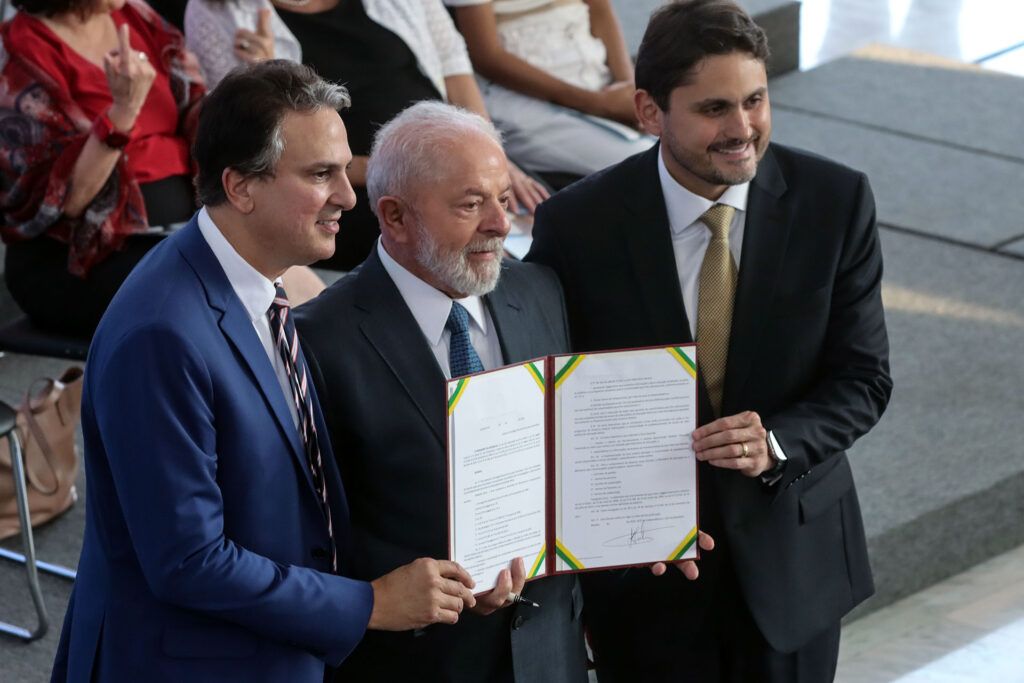
Brazil’s new strategy aims for Internet in all schools
ITU News
The Brazilian government has launched a new national strategy to bring connectivity to the country’s 140,000 state-run schools.
The National Strategy for Connected Schools aims to connect all schools in Brazil to the Internet by the end of 2026, with quality targets to ensure that all students in the country are guaranteed access and can use information and communication technologies (ICTs) for educational purposes.
Despite significant progress in connecting schools in recent years, about 8,000 state-run schools in Brazil still lack any form of Internet access, and many others do not meet the quality targets, according to data from the National Telecommunications Agency (ANATEL). These challenges are even more complex in the Amazon region and the country’s vast rural areas.
The new strategy seeks to address this by ensuring that funds are available to invest in infrastructure expansion and that initiatives can be maintained. It also aims to foster coordination among various institutions involved in school connectivity policies, including federal departments for telecommunications and education, as well as states and municipalities.
The International Telecommunication Union (ITU) and the United Kingdom’s Foreign, Commonwealth and Development Office (FCDO) provided joint support to help diagnose Brazil’s ongoing school connectivity challenges.
“The assessment and recommendations made by ITU were essential for the formulation of the new strategy, which seeks to organize and bring unity to the various initiatives that are underway,” explained Jefferson Nacif, head of international advisory at the Ministry of Communications. “We hope that this partnership continues in this new moment of implementing the strategy.”
Several initiatives in recent years have focused on connecting the country’s public schools. Funds from a 5G frequency auction, for example, enabled Brazilian states to connect schools.
The Connected Education Innovation Policy (PIEC) was adopted to ensure financial sustainability. This year, resources from the Telecommunications Services Universalization Fund (FUST) were also allocated for school connectivity.
Still, experts and policy makers cite the need for a more coordinated approach. A recent ITU report, Challenges and opportunities for sustainable and effective connectivity policies in Brazilian schools, notes the multitude of goals, projects and sustainability approaches that should be integrated to achieve meaningful connectivity.
The new national school connectivity strategy aims to create a unified governance committee overseen through the Civil House of the Presidency of the Republic.
Giga, the global initiative to connect every school in the world to the Internet by 2030, announced on 9 November that it is now operational in 30 countries. The global initiative, formed and run by ITU and UNICEF, has offered advanced connectivity support to 12 new countries this year, including Brazil.
Support for inclusive digital access
ITU has supported the Brazilian government in enhancing last-mile connectivity, including for schools, through a partnership with the global Digital Access Programme of the UK’s FCDO since 2021. This has included technical and regulatory assistance, along with developing infrastructure maps to aid in the execution of public policies.
Cosmas Luckyson Zavazava, Director of the Telecommunication Development Bureau (BDT) at ITU, said that “ITU is proud to have worked with the UK’s FCDO to provide regulatory support to Brazil and contribute towards this new strategy. Closing the digital divide and working to drive digital transformation for all is at the core of ITU’s digital development work, and we will continue to support Brazil and other countries on their journey towards achieving meaningful connectivity for all.”
“The partnership of FCDO with ITU as part of our wider Digital Access Programme has been instrumental in supporting the capacity of partner countries on inclusive connectivity,” said Alessandra Lustrati, Head of Digital Development at FCDO. “This collaboration in Brazil is a great example of how we can work together to facilitate systemic change and help close the digital divide, especially in the education sector.”
Brazil’s President Lula da Silva attended the launch of the strategy in the capital, Brasília, earlier this year, along with the Ministers of Communications and Education, other officials in those sectors, and representatives from the private sector and civil society.

Mariana Cartaxo, Director of the Digital Access Programme at the UK Embassy in Brazil, represented FCDO, while Bruno Ramos, ITU Regional Director for the Americas, represented the UN agency.
“The new Brazilian strategy reveals a maturing of multi-sectoral dialogue in the country and the practical realization of the government’s commitment to guaranteeing opportunities for all students,” Ramos said.
Regulations for the initiative are expected by the end of the year, enabling the formation and activation of the governance committee. ITU and FCDO aim to keep supporting Brazil through the implementation process, with technical and regulatory assistance and infrastructure maps for school connectivity.
Header image and photo credit: Valter Campanato/Agência Brasil.
